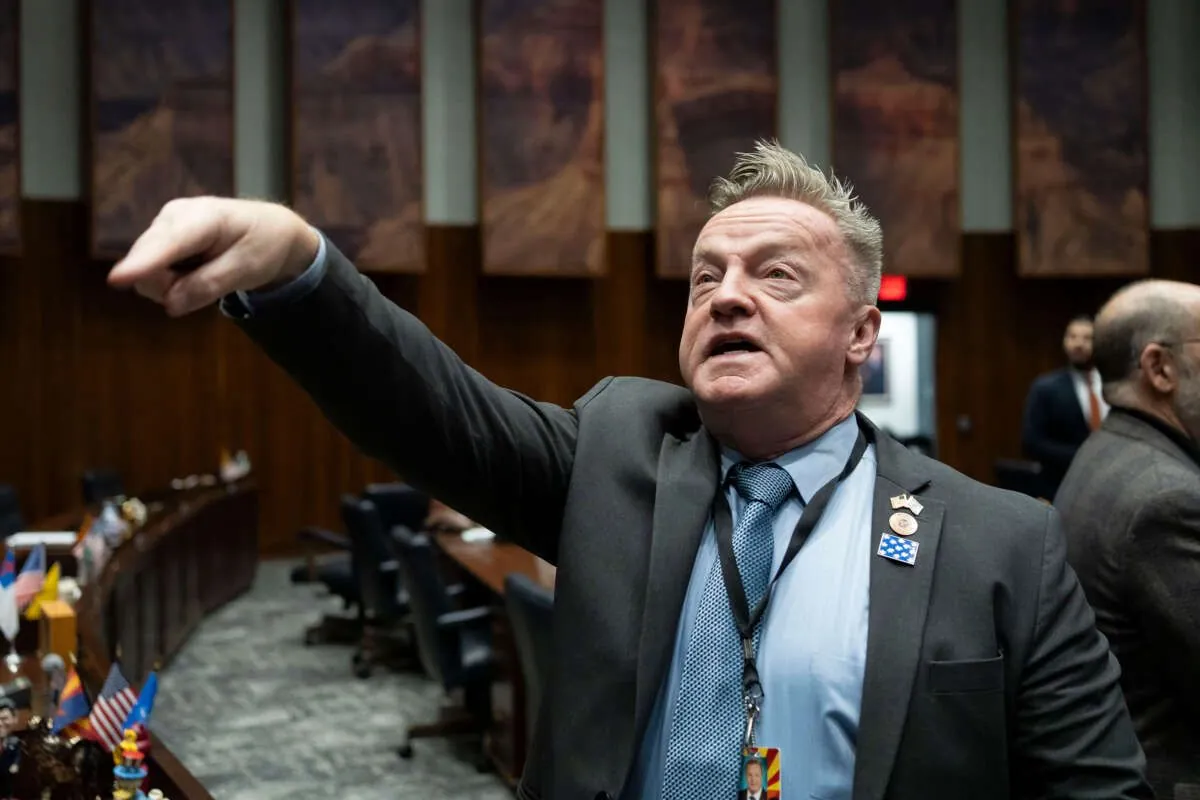An Arizona grand jury, which indicted 18 allies of Donald Trump this spring, expressed interest in potentially charging the former president for his role in attempts to overturn the 2020 election results. This information came to light in a recent legal motion filed by state prosecutors, offering a rare glimpse into typically confidential grand jury proceedings.
The lead prosecutor, Nicholas Klingerman, presented a PowerPoint to the jury on April 22, 2024, advising against indicting Trump. He cited concerns about double jeopardy and insufficient evidence. Klingerman acknowledged the jury's interest, stating, "I know that may be disappointing to some of you. I understand."
Among those indicted were key Trump advisers, including former White House Chief of Staff Mark Meadows, attorneys Rudy Giuliani, Jenna Ellis, John Eastman, and Christina Bobb. Additionally, 11 Arizona Republicans who signed false elector documents on December 14, 2020, were charged. All defendants have pleaded not guilty.
The motion, filed by Arizona Attorney General Kris Mayes, refutes claims that the investigation was politically motivated. It emphasizes that prosecutors repeatedly advised the jury they could choose not to issue any indictments. The document reveals that the jury, comprising 16 jurors and four alternates, had significant control over the investigation's direction.
"At any time, have you ever received any indication from the current Attorney General, Kris Mayes that she wants a specific outcome from your investigation?"
"Absolutely not."
In a notable development, Jenna Ellis, a former legal adviser to Trump's 2020 campaign, reached a cooperation deal with the attorney general on August 5, 2024. This agreement allows her to avoid potential jail time and nine felony charges in exchange for full cooperation and testimony.
The case highlights the complex legal and political landscape surrounding the 2020 election aftermath. While the Arizona grand jury showed interest in pursuing charges against Trump, prosecutors ultimately advised against it, demonstrating the careful considerations involved in such high-profile investigations.
As the case progresses, it continues to shed light on the events surrounding the 2020 election and the subsequent attempts to challenge its outcome. The proceedings underscore the importance of electoral integrity and the legal system's role in addressing alleged misconduct in the democratic process.
